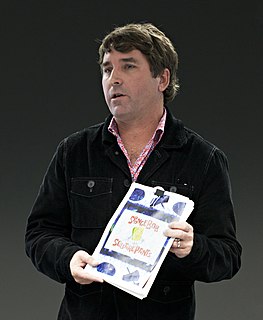A Quote by Richard Rodriguez
Mexicans who come to America today end up opposing assimilation. They say they are "holding on to their culture." To them, I say, "If you really wanted to hold on to your culture, you would be in favor of assimilation. You would be fearless about swallowing English and about becoming Americanized. You would be much more positive about the future, and much less afraid. That's what it means to be Mexican.
Related Quotes
The fact that we're all hyphenating our names suggests that we are afraid of being assimilated. I was talking on the BBC recently, and this woman introduced me as being "in favor of assimilation." I said, "I'm not in favor of assimilation." I am no more in favor of assimilation than I am in favor of the Pacific Ocean. Assimilation is not something to oppose or favor - it just happens.
I would rather say that I have to be not from Los Angeles but from America. When I go to Europe or Asia, I find myself disoriented. I'm not so inspired by their culture as much. It's not going to really come out in my work. I would be more influenced by what somebody from America does - like a sign painter from Pennsylvania.
If educators were really understanding of that, they'd say, "You know what? Forget about bilingual, we're going to do multilingual education." So children are ready for the new millennium. We're way behind compared to countries in Europe. If we were multilingual, imagine how much you would learn about your own culture, about the sensibilities of what's important in your own culture.
[Grandfather] would manufacture funnies with Grandmother before she died about how he was in love with other women who were not her. She knew it was only funnies because she would laugh in volumes. 'Anna,' he would say, 'I am going to marry that one with the pink hat.' And she would say, 'To whom are you going to marry her?' And he would say, 'To me.' I would laugh very much in the back seat, and she would say to him, 'But you are no priest.' And he would say, 'I am today.' And she would say, 'Today you believe in God?' And he would say, 'Today I believe in love.
Where would we in Washington and we in America be without the Center? We would know much less about the workings of our Congress, and our tax dollars. We would know much less about the powers of the Executive, and its ability to hide wrong doing behind secrecy and classification. The Center takes the notion of integrity very seriously, and its investigations are a model for today's good journalism and, we all hope, an inspiration for the mainstream press to do more.
"What would people say about you when you're gone?" That to me was a very important question. I thought about that for a couple of years and said, "What people say about you when you're gone doesn't matter. You're gone." What really matters is, "What do you say about yourself in the here and now? Are you proud of what you're doing?" If you had a short lease and it ended today, or it ends tomorrow, what would you wish you would have done? You better do it.
The people at festivals are much more open to dance and just sing along. They come right up to the stage and they're very thankful. That's one thing I really appreciate about the yoga culture, that the people are very thankful. They come up to you as much as any fan would, but they express sincere gratitude and I appreciate that.
If everybody is looking for it, then nobody is finding it. If we were cultured, we would not be conscious of lacking culture. We would regard it as something natural and would not make so much fuss about it. And if we knew the real value of this word we would be cultured enough not to give it so much importance.
I think the American people would be compassionate and practical. But we need to be talking about assimilation as well, something that is politically incorrect, I know, to say that people should learn English, should learn American exceptionalism, shouldn't come here to use our freedoms to undermine the freedoms we give to everybody. But there's nothing wrong with saying people who want to come here should want to be Americans.
One of the questions asked in that study was, How many Vietnamese casualties would you estimate that there were during the Vietnam war? The average response on the part of Americans today is about 100,000. The official figure is about two million. The actual figure is probably three to four million. The people who conducted the study raised an appropriate question: What would we think about German political culture if, when you asked people today how many Jews died in the Holocaust, they estimated about 300,000? What would that tell us about German political culture?



































